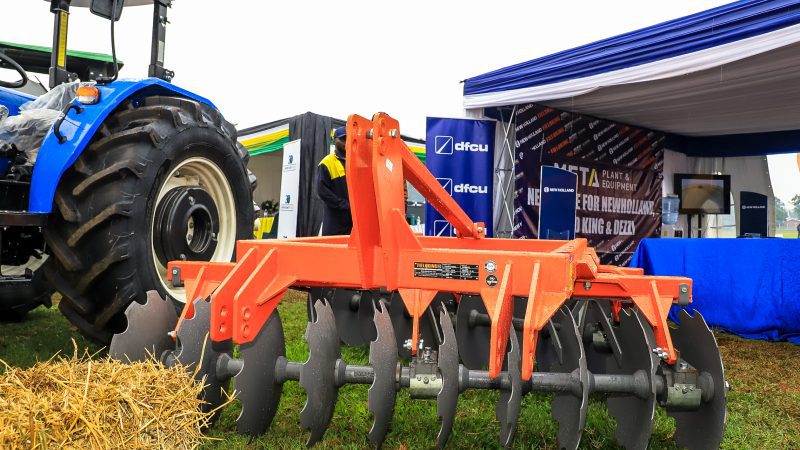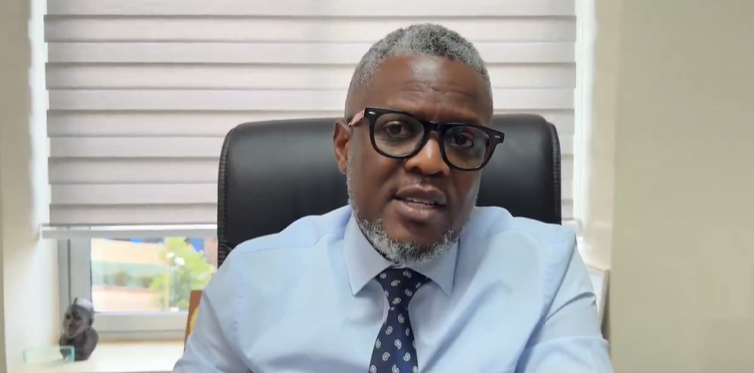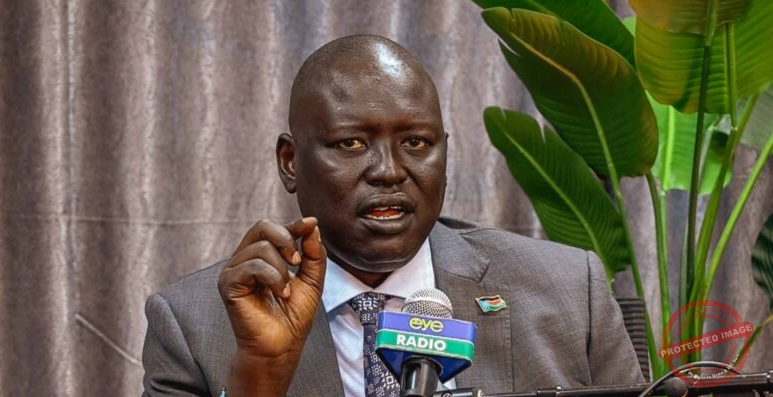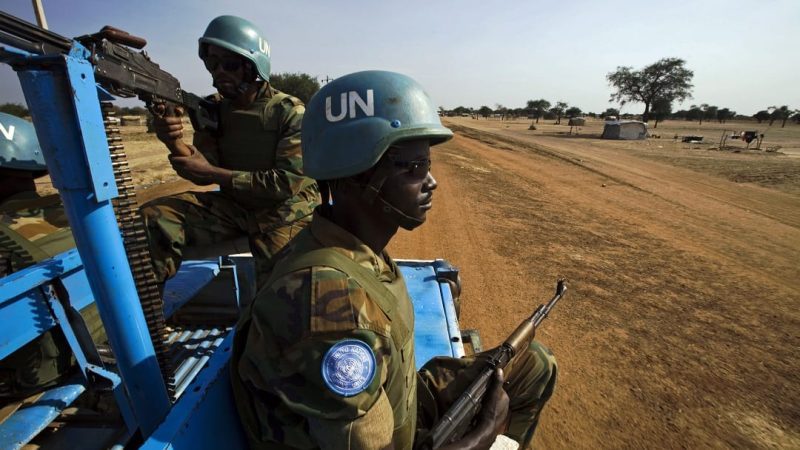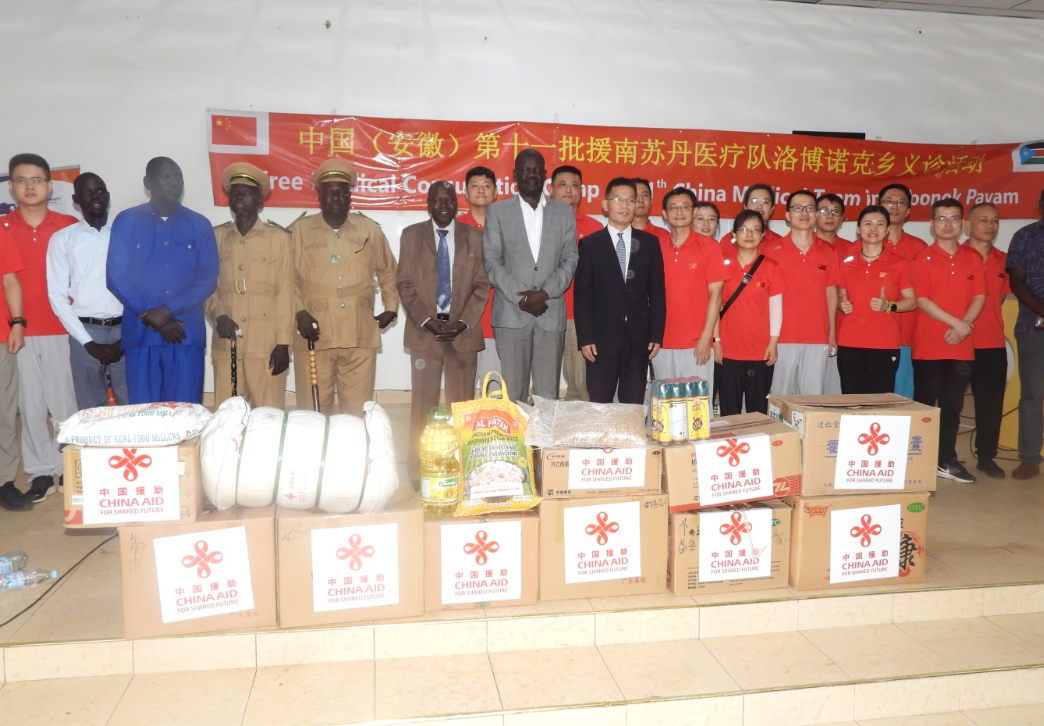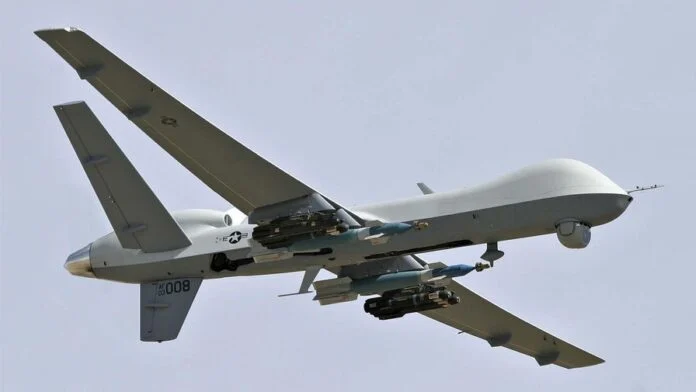The eleventh batch of China medical team on Saturday donated medical equipment and food items to the population of Lobonok payam located 38 kilometers from Juba, the capital of South Sudan.
Lobonok payam where the Vice President for Economic Cluster, James Wani Igga hails from has been affected by insurgency since 2020, following the defection of the Thomas Cirilo Swaka, the former deputy chief of logistics in the South Sudan People’s Defense Force (SSPDF).
The Chinese medical team with permission from the national government visited Lobonok, one of the several payams under Central Equatoria State to offer medical consultations and treatment to thousands of vulnerable people.
Isaac Loki, the medical director of Lobonok payam primary health care center (PHCC), said the visit of the China medical team has eased the heavy burden on the primary health care center which serves more than 15,000 people from the 9 bomas of Lobonok payam.
“A mother died in January due to birth complications at our health facility because we could not transfer her to the main Juba Teaching Hospital due to lack of ambulance, and this was followed up by the death of a nine-month old baby whom we could not treat due to lack of specialized equipment,” Loki said during the donation ceremony attended by local chiefs and government officials.
James Wani, Director General of Central Equatoria State, praised the 11th batch of China medical team for providing would be costly health services for free to the local community.
“Health care is a right for every citizen of South Sudan, and it is a key priority in the government’s development agenda,” Wani said.
Wani noted that the government of South Sudan signed bilateral agreement with the People’s Republic of China to construct and modernize the main Juba Teaching Hospital, adding that the government of China has also been instrumental in supporting the people of South Sudan through the provision of critical medical supplies during the COVID-19 pandemic.
“China medical team came here not only to treat our patients, but also to provide us better understanding of modern medicine through training sessions for our medical doctors and nurses,” Wani said.
Mu Jianjun, the Economic and Commercial Affairs Counselor at the Chinese Embassy in South Sudan, said that over the past 13 years since the establishment of diplomatic relations between the two countries, practical cooperation in various fields has been fruitful, with a number of projects implemented in the sectors of energy development, infrastructure, health, agriculture and education.
“Over the past 12 years, more than 60,000 local people have received medical treatment from the China medical teams, and more than 1000 surgeries of various kinds have been performed,” Mu said.
In addition to daily diagnosis and treatment services, the China medical team has also trained local medical students, provided technical support to South Sudanese medical personnel, traveled to the different counties to carry out 21 voluntary medical consultations, provided free diagnosis and treatment services for the people in remote areas.
Successive Chinese medical teams have been regularly visiting orphanages, and benefited the local people with their kind hearts, making an important contribution to the development of the healthcare of South Sudan and the relationship between China and South Sudan.
Chen Si, leader of the eleventh batch of China medical team said that medical cooperation is a cornerstone of the bilateral relations between South Sudan and China.
“It embodies the spirit of solidarity and mutual assistance that underpins the China-South Sudan partnership. By sharing our expertise and resources, we are not only addressing pressing health needs but also laying the foundation for sustainable development and a healthier future for all. The clinic camp today jointly underscores our shared vision of building a healthier, more resilient South Sudan,” he said.
Chen noted that over the past years, Chinese medical teams have made significant contributions to South Sudan’s healthcare landscape.
He said that his team is very proud of the numerous successful surgeries, disease treatments, and public health campaigns that have been undertaken, adding that these efforts have strengthened South Sudan’s healthcare capacity and improved the quality of life for many families.
The visit by the China medical team to Lobonok payam was organized by the Chinese embassy on the invitation of the Vice President’s office, the Central Equatoria State Ministry of Health and Lobonok officials.


